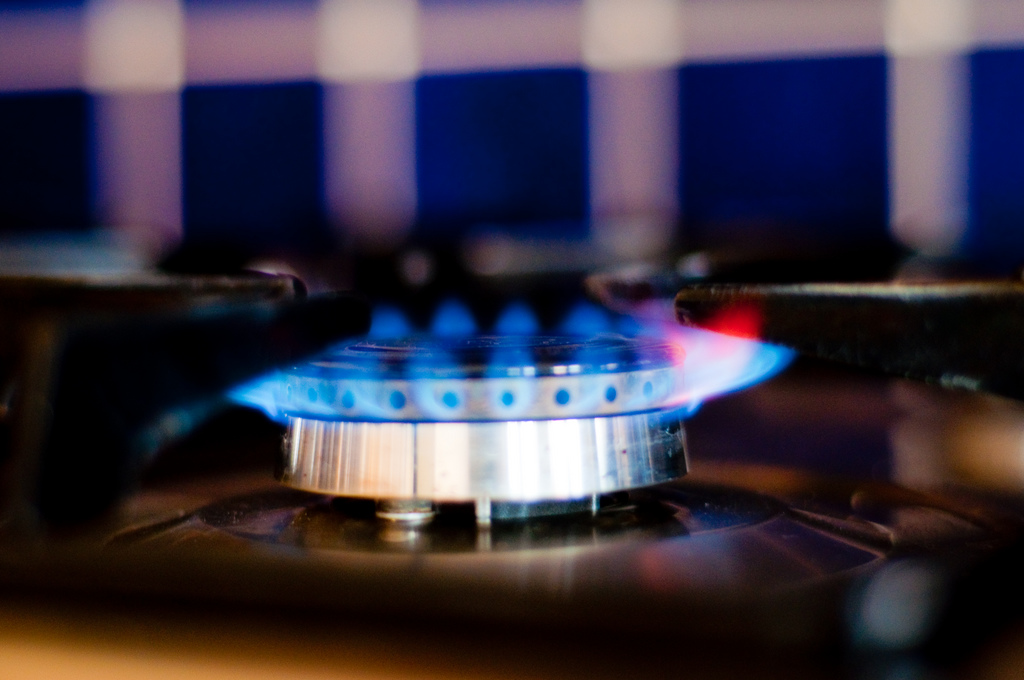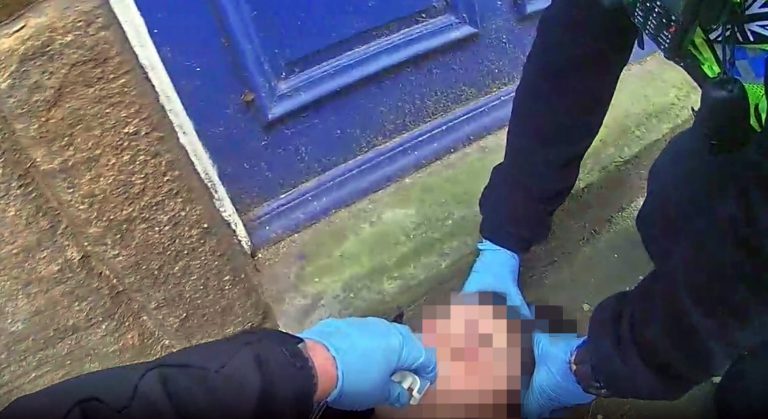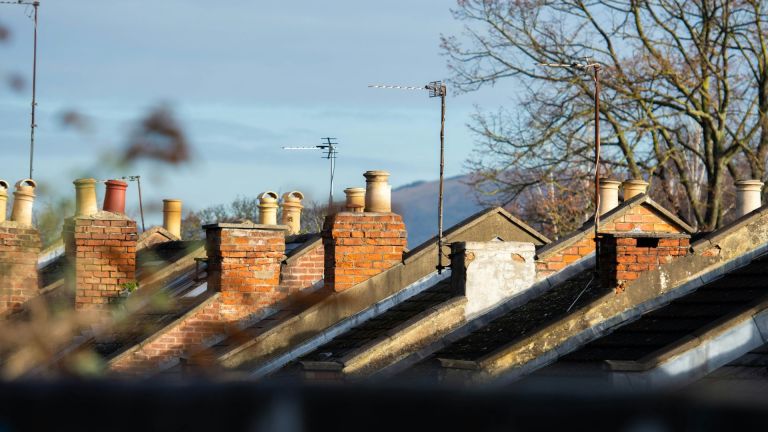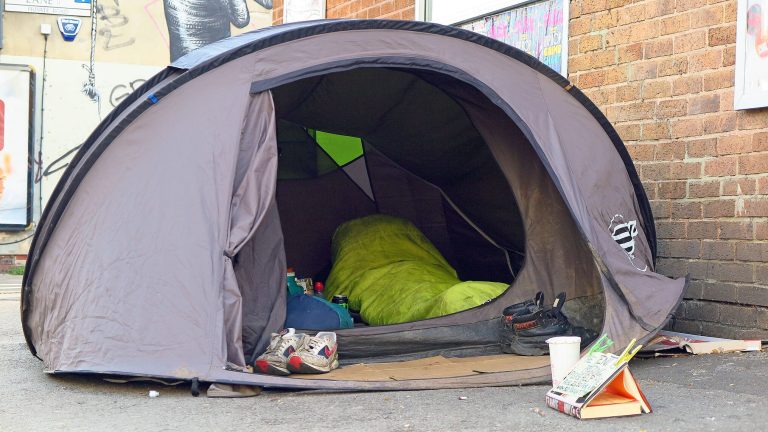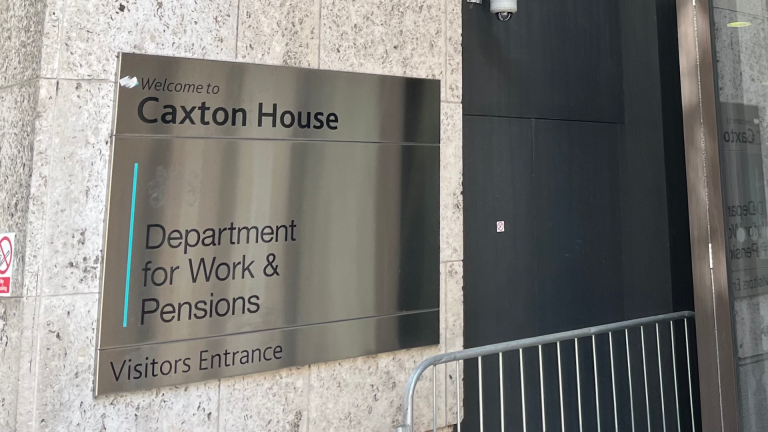Because of the way fuel poverty is calculated, fuel poor households might include those who aren’t traditionally considered poor, but are pushed into fuel poverty by their high energy requirements. Others who have relatively low incomes might also have lower energy costs and not be considered fuel poor.
A household is considered by the government to be in fuel poverty if they meet both of the following requirements
- They are living in a property with a fuel poverty energy efficiency rating of band D or below
- When they spend the required amount to heat their home, they are left with a residual income below the poverty line (people are considered to be in poverty if their household income is 60% lower than the median across the UK)
This is known as the Low Income Low Energy Efficiency (LILEE) indicator and is used in England to calculate fuel poverty rates.
If your home has a fuel poverty energy efficiency rating of band D or below, and your income falls below the poverty line, you are classified as ‘fuel poor’ according to the government’s indicator.
With energy bills too high for them to afford, fuel poor households are left unable to turn on their heating in the depths of winter or to cook hot meals.
In England, a property with an energy efficiency rating of C or better cannot be defined as being in fuel poverty, regardless of their income or the level of energy prices.
Advertising helps fund Big Issue’s mission to end poverty
But campaigners have criticised the government’s definition of fuel poverty. Connor Schwatz, warm homes campaigner at Friends of the Earth, said: “The government’s narrow definition of fuel poverty is farcical because it discounts anyone living in a reasonably well insulated home.
“With bills as unprecedentedly high as they have been in the last year, even many of those in better insulated homes have had to make the impossible choice between heating and eating.”
NEA defines fuel poverty instead as “low-income households spending more than 10% of their income on their energy bills”. By this definition, millions more people are living in fuel poverty.
By the government’s definition, energy rebates like the warm home discount are treated as if they improve the energy efficiency of a dwelling. This reduces the number of people officially deemed to be in fuel poverty, without the added benefits of reducing greenhouse gas emissions on their property.
How many households in the UK are in fuel poverty?
According to the government’s statistics, 3.17 million households in England were living in fuel poverty in 2023. This was around 13% of all households.
But other estimates go further. NEA defines fuel poverty as affecting households who spend more than 10% of their income on energy bills (after housing costs). There were 7.39 million households who were living in fuel poverty by this description in 2022, according to the government’s own statistics.
Advertising helps fund Big Issue’s mission to end poverty
In 2022, University College London’s Institute of Health Equity warned of a “humanitarian crisis” for UK children forced to live in cold homes.
Improved energy efficiency in homes resulted in a small decrease in fuel poverty between 2022 and 2023, a government report said.
Fuel poverty fell by 40% between 2010 and 2019, according to Westminster’s fuel poverty committee – progress which stalled when the Covid-19 pandemic hit.
“Fuel poverty has flatlined,” committee chair Caroline Flint said in a 2024 report. “I don’t think any government anticipated this.
“Perhaps the stable energy prices for most of the 2010s created an optimism that fuel poverty would continue to fall for years to come. That optimism was misplaced.”
Who is most at risk of fuel poverty?
Fuel poverty impacts some groups of people more than others. NEA reported that 5.9 million low-income and financially vulnerable households were living in fuel poverty from April 2023, as well as 1.8 million carers, 3.6 million people with a disability and 1.6 million in off-gas homes.
Advertising helps fund Big Issue’s mission to end poverty
According to the government’s statistics, ethnic minorities are more likely to struggle with fuel poverty. A total of 20.3% of ethnic minority households were living in fuel poverty in 2022, compared with 12.4% of white households. Some areas are more affected than others. People living in the poorest and coldest regions of the UK are likely to be the worst affected by growing fuel poverty rates along with those who are already most likely to be struggling with the cost of living.
The West Midlands had the highest rate of fuel poverty at 19.2%, compared to 8.6% in the South East. Northern regions tend to have lower than average incomes, while southern regions outside London tend to have the largest floor areas.
Households living in rural areas had the highest fuel poverty rate of 15.9% in 2022. This is partly because 56.8% of households are off the gas grid and can’t access mains gas, compared with just 9% in urban properties.
Households using a prepayment electricity meter were more likely to be fuel poor, with 38% affected compared with 11% for households paying by direct debit.
The highest level of fuel poverty was in the private rented sector with 24.1%. People living in social housing, although more likely to be on a low income, are less likely to fit into the government’s definition of “fuel poor”. This is because the social housing sector has the highest share of band A-C homes (69.5%). In the private rented sector, it’s just 29.3%.
Properties with uninsulated solid walls had the highest rate of fuel poverty (22.8% of households).
Advertising helps fund Big Issue’s mission to end poverty
Older people are also more likely to suffer from fuel poverty. Age UK says retired households have the highest average fuel costs compared to those of other ages. Academics at the University of York found more than 90% of large families and pensioner couples will be in fuel poverty by January 2023.
But young people are also struggling. The government’s statistics show one in four households (25%) where the oldest person is under 25 are living in fuel poverty, while more than 900,000 households with children were facing fuel poverty.
Any strategy to tackle the problem must be aligned with other policies to end inequality, the Westminster fuel poverty committee said in 2024, such as those aimed at ending child poverty.
What causes fuel poverty?
The key factors that contribute to fuel poverty are the energy efficiency of a home, the cost of energy bills, and household income, according to anti-poverty charity Turn2us.
Soaring household energy bills are a big factor in the increasing numbers of people living in fuel poverty in the UK. The energy price cap is set to rise to £1,738 from January 2025, something NEA’s chief executive Adam Scorer said would “impact millions of vulnerable households”.
“Bills are around 50% higher than pre-crisis levels,” Scorer added. “With temperatures now plunging and far less support available many are getting deeper into debt trying to keep warm. Now we know there will be no let up into January and beyond. Targeted government support is essential to save millions from the misery and danger of a cold home.”
Advertising helps fund Big Issue’s mission to end poverty
Your support changes lives. Find out how you can help us help more people by signing up for a subscription
Many people live in draughty homes and rely on heating systems that are old and inefficient. The heat escapes even when turned up to full, making it harder to bring down the total cost of bills.
Others face hardship because their income is low, or because they can’t rely on regular work. People might also feel unsupported by the welfare system and struggle to access universal credit, which can have an impact on whether they can afford energy.
Those who find themselves in this situation might feel forced to prioritise buying food or other essentials and sacrifice energy bills.
How does fuel poverty affect people?
An estimated 10,000 people die each year from health conditions arising or worsening from having a cold home, according to NEA.
An average 45 people per day died as a result of cold homes in England and Wales between December 2021 and March 2022, analysis by the campaign group of Office for National Statistics data showed. Low temperatures can make it more difficult to manage damp and mould in a home, which can exacerbate health conditions.
Advertising helps fund Big Issue’s mission to end poverty
Fuel poverty can cause respiratory infections and bronchitis, stress on the cardiovascular system, make asthma symptoms worse or cause asthma to develop, and contribute to mental health struggles. That’s according to charity Friends of the Earth.
Amid a cost of living crisis, families face a sharp spike in energy costs, meaning those who have old gas boilers or cookers may not be able to afford to cook a hot meal or have a hot shower.
It’s no longer a choice between heating or eating – many vulnerable people living in the UK can’t afford either and are relying on charities to survive.
Pensioner Elaine told the Big Issue she has not put on the heating in her home for three years because she can’t afford her bills. “I don’t have anything now to live on,” Elaine said. “I have no money. The cost is going up and up, and I know I won’t be able to pay for the electricity, so I’m going to have to get lights with batteries.”
Food bank manager Charlotte Write wrote in the Big Issue: “Since the cost of living crisis has accelerated, items like instant noodles (which only require a kettle) or no-cook items like corned beef and spam have become much more popular.
“As guest Heidi says: ‘I have £1 left on the electric for the rest of the week. I need this to charge my girls’ tablets so they can do their school homework, I can’t put the oven on as well.’”
Advertising helps fund Big Issue’s mission to end poverty
Where to get fuel poverty help if you can’t afford your energy bills
There is help out there for people facing fuel poverty (and those who just can’t afford to pay their energy bills). This might come in the form of benefits and support from the government. For example, some people qualify for the winter fuel payment to help them pay their heating bills. This is a one-off payment made to households that include someone over pension age – but the government is set to change eligiblity for the payment, only giving it to people who receive pension credit.
The move will “harm the NHS and care systems as pensioners get sick and die in cold homes”, Jonathan Bean, parliament and policy lead at Fuel Poverty Action, told Big Issue.
“It’s a political choice that will cause huge suffering.
“Sadly the number of pensioners pushed into poverty by this cut is only the tip of the iceberg of 2.5 million who will be unable to heat their homes properly after this cruel decision.”
You can also get charitable grants if you need extra financial support, and your energy supplier can offer help to people who need it.
Find out more about where to get help to pay your energy bills here, from government support to grants and discounts.
Advertising helps fund Big Issue’s mission to end poverty
How do we tackle fuel poverty?
As we face a cost of living crisis, campaigners are calling on the government to tackle fuel poverty by making homes more energy efficient, introducing a windfall tax on big energy companies, and providing additional support to people on low incomes.
Fuel Poverty Action is campaigning for ‘Energy for All’ – they want a more effective windfall tax, and an end to the huge subsidies going to oil and gas producers, traders and suppliers.
They’re also calling for the government to guarantee people will receive “enough energy, free – to cover the basics like heating, cooking, and lighting – to give us all the security we need, taking account of people’s actual needs related to their age, health, and housing”.
Simon Francis, End Fuel Poverty Coalition Co-ordinator, said: “While we need emergency financial support to help the most vulnerable stay warm this winter, we also need the government to invest in long term solutions to fuel poverty. This includes additional support for energy efficiency measures, investment in renewables and weaning the nation of volatile fossil fuels which are at the heart of how we got into this mess in the first place.”
Do you have a story to tell or opinions to share about this? Get in touch and tell us more. Big Issue exists to give homeless and marginalised people the opportunity to earn an income. To support our work buy a copy of the magazine or get the app from the App Store or Google Play.
